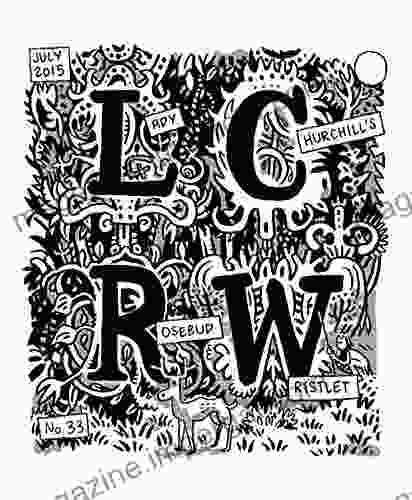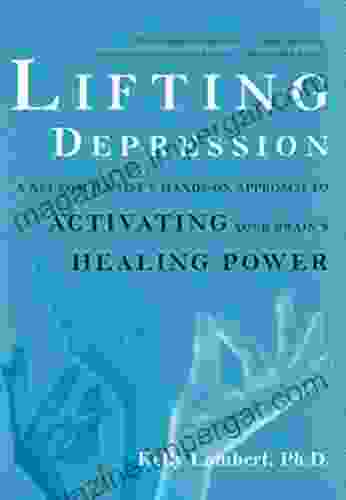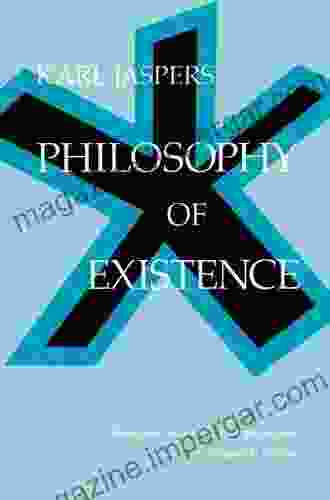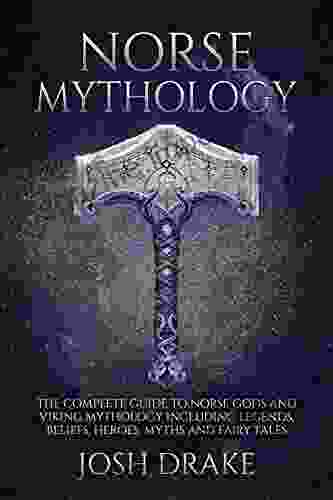Philosophy of Existence Works in Continental Philosophy

The philosophy of existence is a major school of thought in continental philosophy that focuses on the analysis of human existence. Existentialism, as it is also known, is concerned with the question of what it means to be human, and how we can live authentic and meaningful lives in the face of the absurdity and meaninglessness of the universe.
The philosophy of existence has its roots in the work of Søren Kierkegaard and Friedrich Nietzsche in the 19th century. Kierkegaard argued that human existence is characterized by anxiety and despair, and that we can only find meaning in life by embracing our individuality and living authentically. Nietzsche, on the other hand, argued that the universe is ultimately meaningless, and that we must create our own meaning through our own actions.
In the 20th century, the philosophy of existence was further developed by thinkers such as Martin Heidegger, Jean-Paul Sartre, and Emmanuel Levinas. Heidegger argued that human existence is characterized by being-in-the-world, and that we can only understand ourselves in relation to the world around us. Sartre argued that human beings are free and responsible for their own actions, and that we must choose to live authentically even in the face of the absurdity of the universe. Levinas argued that human existence is characterized by an ethical responsibility to the other, and that we can only find meaning in life through relationships with others.
The philosophy of existence is a complex and challenging tradition of thought, but it is also a deeply rewarding one. By studying the work of existentialist thinkers, we can gain a deeper understanding of ourselves and of the world around us, and we can learn how to live more authentic and meaningful lives.
Søren Kierkegaard
Søren Kierkegaard (1813-1855) is considered to be the father of existentialism. In his work, Kierkegaard argued that human existence is characterized by anxiety and despair, and that we can only find meaning in life by embracing our individuality and living authentically.
Kierkegaard's existentialism is based on the idea that human beings are not simply rational beings, but also creatures of passion and emotion. He argued that we cannot understand ourselves or the world around us by relying solely on reason, and that we must also embrace our irrational and emotional sides.
Kierkegaard also argued that human existence is characterized by a fundamental choice between two ways of life: the aesthetic life and the ethical life. The aesthetic life is characterized by a focus on pleasure and self-gratification, while the ethical life is characterized by a focus on duty and responsibility. Kierkegaard argued that the ethical life is the only truly authentic way of life, and that we must choose to live ethically even in the face of the absurdity and meaninglessness of the universe.
Kierkegaard's work has had a profound influence on the development of existentialism, and he is considered to be one of the most important philosophers of the 19th century. His work continues to be studied and debated by philosophers and theologians today.
Friedrich Nietzsche
Friedrich Nietzsche (1844-1900) is another major figure in the history of existentialism. Nietzsche argued that the universe is ultimately meaningless, and that we must create our own meaning through our own actions.
Nietzsche's existentialism is based on the idea that human beings are not essentially rational beings. He argued that we are primarily creatures of instinct and passion, and that we must embrace our irrational and emotional sides in Free Download to live authentically.
Nietzsche also argued that human existence is characterized by a fundamental conflict between two opposing forces: the Apollonian and the Dionysian. The Apollonian represents Free Download, reason, and control, while the Dionysian represents chaos, passion, and irrationality. Nietzsche argued that we must find a way to integrate both of these forces into our lives in Free Download to live authentically.
Nietzsche's work has had a profound influence on the development of existentialism, and he is considered to be one of the most important philosophers of the 19th century. His work continues to be studied and debated by philosophers and theologians today.
Martin Heidegger
Martin Heidegger (1889-1976) is one of the most important philosophers of the 20th century. Heidegger's work has had a profound influence on the development of existentialism, and he is considered to be one of the most important existentialist thinkers.
Heidegger's existentialism is based on the idea that human existence is characterized by being-in-the-world. He argued that we cannot understand ourselves or the world around us by relying solely on reason, and that we must also take into account our own experiences and our relationships with others.
Heidegger also argued that human existence is characterized by a fundamental anxiety in the face of death. He argued that we are always aware that we are going to die, and that this awareness shapes our experience of the world.
Heidegger's work has had a profound influence on the development of existentialism, and he is considered to be one of the most important philosophers of the 20th century. His work continues to be studied and debated by philosophers and theologians today.
Jean-Paul Sartre
Jean-Paul Sartre (1905-1980) is another major figure in the history of existentialism. Sartre argued that human beings are free and responsible for their own actions, and that we must choose to live authentically even in the face of the absurdity of the universe.
Sartre's existentialism is based on the idea that human beings are not essentially rational beings. He argued that we are primarily creatures of freedom, and that we must choose to create our own meaning in life.
Sartre also argued that human existence is characterized by a fundamental conflict between two opposing forces: the self and the other. The self is the individual, while the other is the world around us. Sartre argued that we must find a way to balance our own needs and desires with the needs and desires of others in Free Download to live authentically.
Sartre's work has had a profound influence on the development of existentialism, and he is considered to be one of the most important existentialist thinkers. His work continues to be studied and debated by philosophers and theologians today.
Emmanuel Levinas
Emmanuel Levinas (1906-1995) is a French philosopher who is considered to be one of the most important contemporary existentialist thinkers. Levinas's work is focused on the relationship between the self and the other, and he argues that human existence is characterized by an ethical responsibility to the other.
Levinas's existentialism is based on the idea that the other is always present in our experience of the world. He argued that we cannot understand ourselves or the world around us without taking into account our relationships with others.
Levinas also argued that human existence is characterized by a fundamental responsibility to the other. He argued that we are obligated to care for and protect the other, even if we do not know them or understand them.
Levinas's work has had a profound influence on the development of existentialism, and he is considered to be one of the most important contemporary existentialist thinkers. His work continues to be studied and debated by philosophers and theologians today.
The philosophy of existence is a complex and challenging tradition of thought, but it is also a deeply rewarding one. By studying the work of existentialist thinkers, we can gain a deeper understanding of ourselves and of the world around us, and we can learn how to live more authentic and meaningful lives.
The philosophy of existence is not for everyone. It can be a difficult and demanding philosophy, and it is not always easy to accept its implications. However, for those who are willing to take the time to understand it, the philosophy of existence can be a transformative experience. It can help us to see the world in a new light, and it can help us to live more authentic and meaningful lives.
Do you want to contribute by writing guest posts on this blog?
Please contact us and send us a resume of previous articles that you have written.
 Book
Book Novel
Novel Page
Page Chapter
Chapter Text
Text Story
Story Genre
Genre Reader
Reader Library
Library Paperback
Paperback E-book
E-book Magazine
Magazine Newspaper
Newspaper Paragraph
Paragraph Sentence
Sentence Bookmark
Bookmark Shelf
Shelf Glossary
Glossary Bibliography
Bibliography Foreword
Foreword Preface
Preface Synopsis
Synopsis Annotation
Annotation Footnote
Footnote Manuscript
Manuscript Scroll
Scroll Codex
Codex Tome
Tome Bestseller
Bestseller Classics
Classics Library card
Library card Narrative
Narrative Biography
Biography Autobiography
Autobiography Memoir
Memoir Reference
Reference Encyclopedia
Encyclopedia Julia Bascom
Julia Bascom Julian Spalding
Julian Spalding Kate Frey
Kate Frey Karin Slaughter
Karin Slaughter Karen Postal
Karen Postal K Jeffrey Miller
K Jeffrey Miller Judith Kolberg
Judith Kolberg Juliet Floyd
Juliet Floyd Karen Leigh Casselman
Karen Leigh Casselman Kathryn Tempest
Kathryn Tempest Karen C Timberlake
Karen C Timberlake Julian Barnes
Julian Barnes Jude Morrow
Jude Morrow June Presley
June Presley Joy Lennick
Joy Lennick Julien Chaisse
Julien Chaisse Keith Anderson
Keith Anderson Kecia M Thomas
Kecia M Thomas Kai Libicher
Kai Libicher Kelly Lambert
Kelly Lambert
Light bulbAdvertise smarter! Our strategic ad space ensures maximum exposure. Reserve your spot today!

 E.E. CummingsUnlock the Power of Lectins-Free Smoothies: Detoxify, Cleanse, and Revitalize...
E.E. CummingsUnlock the Power of Lectins-Free Smoothies: Detoxify, Cleanse, and Revitalize...
 Alan TurnerUnleash Your Winning Edge: A Comprehensive Guide to Opening Repertoire with...
Alan TurnerUnleash Your Winning Edge: A Comprehensive Guide to Opening Repertoire with... Octavio PazFollow ·3k
Octavio PazFollow ·3k Banana YoshimotoFollow ·6.8k
Banana YoshimotoFollow ·6.8k Milton BellFollow ·12.1k
Milton BellFollow ·12.1k Leo TolstoyFollow ·16.9k
Leo TolstoyFollow ·16.9k Raymond ChandlerFollow ·3k
Raymond ChandlerFollow ·3k Dominic SimmonsFollow ·18.9k
Dominic SimmonsFollow ·18.9k Warren BellFollow ·7.6k
Warren BellFollow ·7.6k Drew BellFollow ·15.8k
Drew BellFollow ·15.8k

 Christian Carter
Christian CarterUnlock Your Cognitive Potential: Embark on a Brain...
"The Brain Fitness Workout"...

 Cortez Reed
Cortez ReedLady Churchill's Rosebud Wristlet No. 33: A Timeless...
Embrace the Legacy of a Remarkable...

 Hector Blair
Hector BlairAm Your Father, Brother: A Gripping Tale of Identity,...
A Heartfelt Exploration of Family Ties and...

 Gary Cox
Gary CoxUnlock the Secrets of Brain Healing: A Neuroscientist's...
: The Revolutionary Power...

 Eugene Scott
Eugene ScottMoments in Time: A Chronological History of the El Paso...
The El Paso...

 Alexandre Dumas
Alexandre DumasUnlocking the Power of HAMP: A Comprehensive Guide to...
Homeownership is...








